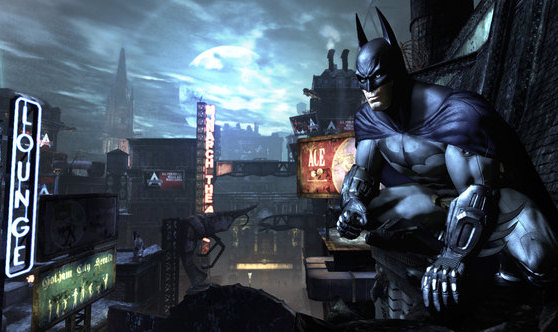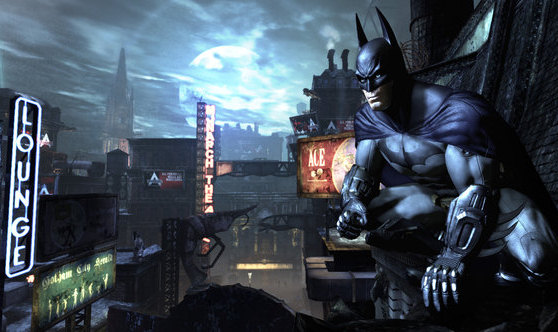Choosing when to buy a new video game is a delicate balancing act. Story spoilers, fluctuating prices, and technical problems all factor into when we decide is the best time to make a purchase. But the right moment is sometimes difficult to foresee. As consumers, how do we know when to play to enjoy the fullest experience? What conditions make a game more suitable to play earlier or later in its lifetime?
The importance of preserving narrative
Harley Quinn’s Revenge, the downloadable follow-up to Batman: Arkham City, is in some ways a story spoiler that comes straight from the developers — not chatty gamers, discourteous Facebook friends, or rude forum members. So much as glance at screenshots for the extra content, and you can guess what supervillain Harley Quinn is upset about even if you aren’t familiar with the game or comics. It has a lot to do with the fate of a certain clown, and it’s arguably one of the all-time greatest moments involving comic-book characters in years.
“When we sat down to work on Batman: Arkham City, we knew where we wanted it to end,” says Paul Crocker, the lead narrative designer at Rocksteady Studios. “In fact, we were so sure of what the ending would be that we opened the game on a painting that showed exactly how the game would end. DC and Warner Bros. were behind us all the way, and our goal was to reach a conclusion that was right for both characters.”
Crocker says that Harley Quinn’s Revenge provides “more context and relevance” for those who have completed the main game and is still enjoyable for those who haven’t. Unfortunately, basic awareness of the DLC can spoil the ending for anyone who has yet to try either release – a result that contradicts Rocksteady’s goal with Batman: Arkham City.
“We work hard to blend old and new elements to create fresh versions of these characters,” says Crocker, adding that since Batman comes with years of backstory that anyone can easily discover, the studio had to find new ways to surprise players. “We really want players to be desperate to see what the ‘Rocksteady’ Robin or ‘Rocksteady’ Penguin looks or sounds like. But at the same time, [we don’t want to] spoil what will happen to these characters during the game.”
For some games, like Thatgamecompany’s Journey, the crux of the experience is story: the enjoyment of narrative from beginning to end. The sooner gamers can play, the more likely they are to avoid spoilers and other outside elements that would diminish the narrative. All it takes is as few words or screenshots to lessen the emotional resonance of a game. In the case of Mass Effect 3, a deluge of complaints tarnished the efforts and accomplishments of a whole trilogy.
Exposing flaws and strengths with time
Other games, such as The Elder Scrolls V: Skyrim and Diablo III, improve with age. Story can still take priority (Skyrim contains so much lore that its devotees grouped its many in-game tomes into a single e–book), but much of the focus is also on gameplay…and how many patches are required to fix it. Postrelease updates add supplemental features like Kinect voice support and address serious issues, such as prevalent bugs. Developers struggle to play catch-up and maintain the massive worlds they’ve built, and before they can launch add-ons or introduce expansions, they have to get their game in working condition.
Bethesda still isn’t happy with Skyrim’s performance on the PlayStation 3, so it’s delayed the release of the Dawnguard DLC on the system. And Blizzard is only now implementing an update for Diablo III (patch 1.04) that will provide a more sustainable end-game experience than item hunting alone. Waiting until a game is stable and reliable can be smarter than slapping down $60 on its release day.
Blockbuster releases aren’t the only games that require time to mature. Polytron Corporation’s indie puzzle-platformer Fez on XBLA was host to a torrent of technical problems, and then its major patch failed, causing more headaches. The developer pulled the patch on June 22, the same day it went public, and then brought it back on July 19.
Sometimes publishers will abandon problematic games completely, so even the most serious complaints will remain unresolved. Atlus might have promptly fixed the lag issues affecting the Xbox 360 version of its recently released Persona 4 Arena, but Konami disappointed its audience on the same platform by canceling an important patch for Silent Hill HD Collection.
Some genres are fussier than others. Fighting games take time to reveal their inner workings, and a good fighter will remain fun, playable, and well balanced years after its debut. Because these games thrive on player-versus-player dynamics, character matchups, and the depth of move combinations and possibilities, they’re more difficult to parse from the onset. A few rounds with another player won’t assess their real strengths, and these games reach their prime when their communities do. Dedicated players compete in tournaments for years after a game’s release.
Early expiration dates
Of course, sometimes a game’s true experience can erode fast, especially when it offers limited opportunities.




